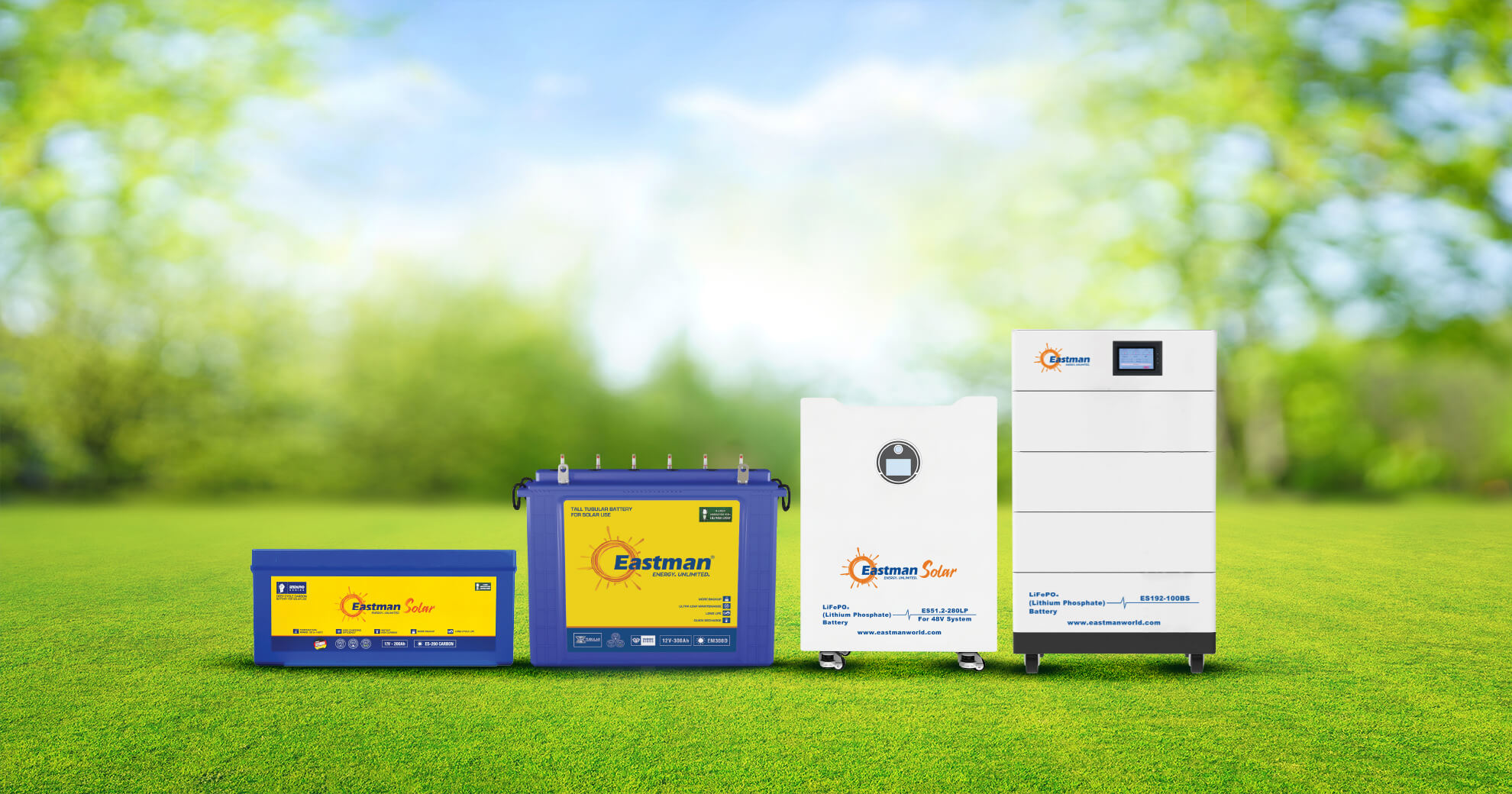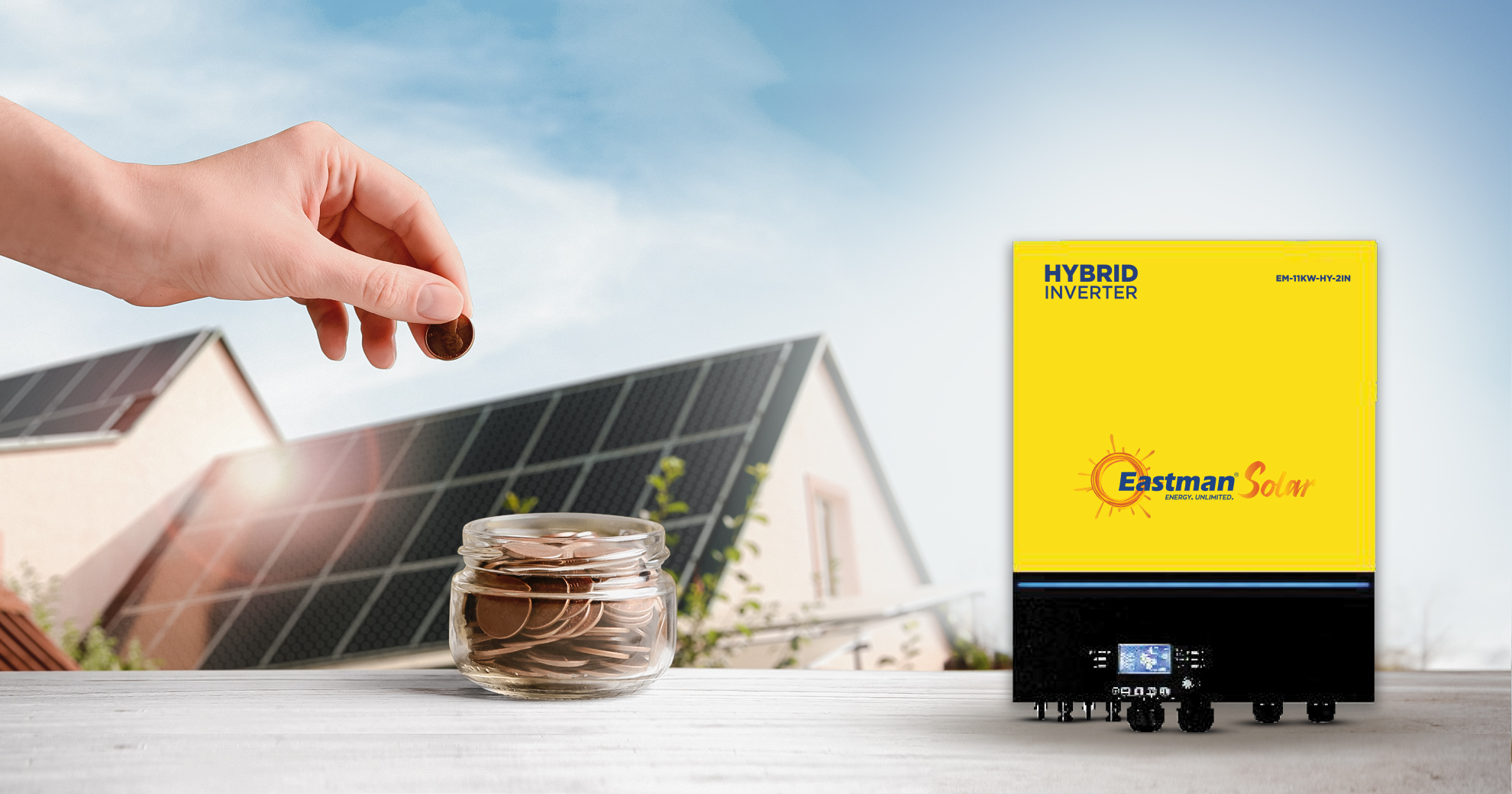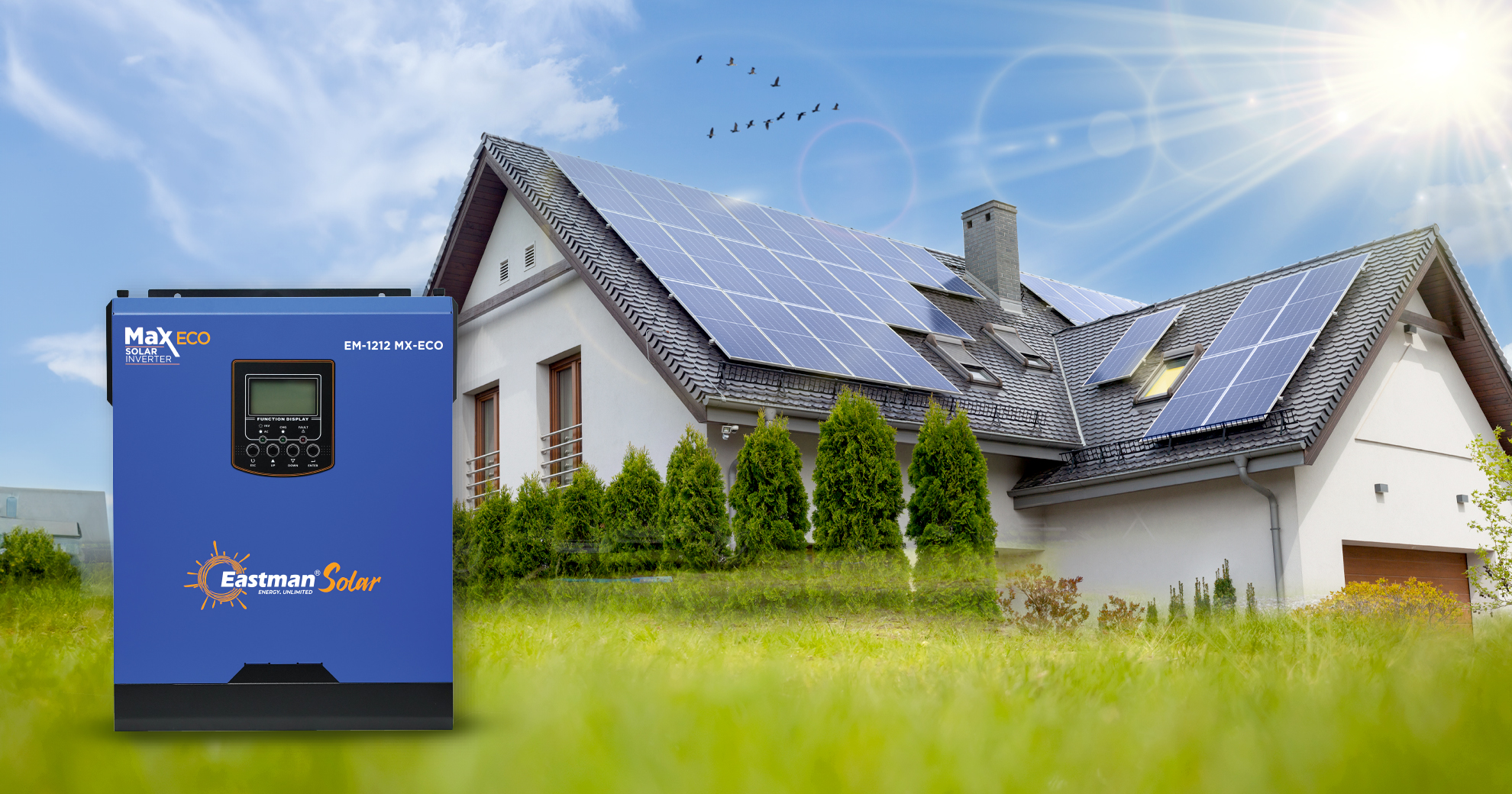
Smart Homes with Solar Battery Innovation
In the era of advancing technology, the intersection of smart homes and solar batteries is shaping the future of energy efficiency.
Smart homes are not just ideas anymore – they are real and a part of our everyday lives. They connect different things in our homes to make life easier. One important change in smart homes is using renewable energy, and solar batteries play a big role in making this happen. There are Three main types of solar batteries — Carbon, Lithium, and Tubular batteries — each playing a unique role in the effective capture and storage of solar energy, thereby making sustainable living a reality.
Lithium Batteries
At the forefront is the Lithium battery, lauded for its exceptional energy density, extended lifespan, and swift charging capabilities. The compact structure makes it an ideal powerhouse for residential solar applications, seamlessly fueling the demands of smart homes with reliability and precision. The best-in-class LiFePO4 battery series prioritizes safety, deep cycle performance, and durability. Equipped with a built-in Battery Management System (BMS), it ensures protection against over-voltage, over-load, and over-temperature. This Lithium Phosphate battery seamlessly combines versatility and scalability, making it the optimal choice for a smart home.
Carbon Batteries:
Lead carbon batteries offer very high cyclic life, high charge efficiency, excellent charge acceptance. Reduced sulphation improves their Partial State of Charge (PSOC ) performance. As a VRLA design, requires no maintenance & no water top up. For those inclined towards eco-conscious alternatives, Carbon batteries take center stage. Harnessing carbon-based materials, these batteries not only excel in energy storage but also champion a sustainable production process. By aligning with the growing demand for green technology, Carbon batteries are contributing to the environmentally conscious landscape of smart homes.
Tubular batteries
Tubular battery is a type of deep-cycle flooded lead-acid battery with tubular plates, designed for efficient and reliable energy storage in solar power systems. It boasts a low cost of ownership, making them an economically sound choice for those looking to power their homes with solar energy. Engineered with a robust design, these batteries offer enhanced durability and performance. The tubular positive plates facilitate efficient charge and discharge cycles, ensuring optimal energy storage for residential applications. As we embark on a journey towards energy-efficient living, tubular batteries stand out as a dependable solution, playing a vital role in the seamless transition to smart homes powered by clean and renewable energy sources.
As the smart home ecosystem expands, the integration of solar batteries becomes instrumental in achieving true energy efficiency. The synergy between intelligent home systems and advanced solar storage solutions optimizes renewable energy utilization, reducing grid dependency, and minimizing carbon footprints. This harmonious convergence is steering us toward a future where our homes are not just connected but are also powered sustainably by the sun.
In conclusion, Lithium, Carbon, and Tubular batteries stand at the forefront of innovation in solar energy storage. Adopting these technologies not only enhances the efficiency of our living spaces but also contributes significantly to a cleaner, greener planet. The future is enlightened, and it radiates with the promise of a more sustainable and energy-efficient way of life.

Maximizing Cost Savings with Hybrid Inverters: What You Need to Know
In today’s evolving energy landscape, hybrid inverters stand out as groundbreaking technology, transforming how we manage power for sustainability and cost-efficiency. Beyond their core function of converting DC to AC power, these inverters seamlessly integrate with solar panels, batteries, and the grid, granting users unprecedented control over energy consumption and savings.
Understanding how hybrid inverters optimize cost savings is vital. Unlike traditional inverters, hybrids seamlessly switch between power sources—solar, grid, and stored battery energy—allowing users to make the most cost-effective choices based on electricity prices, weather, and usage patterns.
A key feature of hybrid inverters is their integration with solar panels, effectively managing generated energy. They store excess power in batteries or send it to the grid, reducing reliance on grid electricity during peak hours and leading to significant cost savings.
These inverters excel in energy storage management, allowing surplus solar energy storage for high-demand periods or low solar production times. This flexibility not only reduces reliance on the grid but also stabilizes energy prices, ensuring long-term savings.
With multiple operation modes like grid-tie, off-grid, and hybrid, users adapt energy strategies based on specific needs. Grid-tie mode permits selling excess energy, while off-grid mode supports remote locations.
The integration of smart monitoring and control systems in hybrid inverters empowers users to track their energy production, consumption patterns, and overall system performance in real-time. These insights enable informed decision-making, allowing users to adjust their energy usage behaviours and maximize cost savings further.
Hybrid inverters are pivotal in reducing grid dependence, maximizing renewable energy use, and making power usage decisions for a cost-efficient and sustainable future. However, choosing the right system and optimizing its operation is crucial to unleash its full potential.

Understanding Off-Grid Inverter Maintenance and Troubleshooting
Off-grid inverters are the backbone of self-sufficient power systems, converting DC electricity from solar panels or batteries into usable AC power. To ensure their optimal performance and longevity, regular maintenance and troubleshooting are essential. Let’s delve into the crucial aspects of maintaining and troubleshooting off-grid inverters for a seamless and reliable energy supply.
1. Importance of Regular Maintenance
Check for Physical Damage
Inspect your off-grid inverter regularly for any signs of physical damage or wear. Look out for loose connections, corrosion, or any unusual Odors. Physical damage can significantly affect the inverter’s efficiency and performance.
Cleanliness Matters
Keep the inverter and its surroundings clean. Dust, debris, or any obstructions can hinder proper ventilation, potentially leading to overheating issues. Regularly clean the vents and ensure adequate airflow to prevent overheating.
Battery Maintenance
If your off-grid system includes batteries, maintaining them is crucial. Check battery connections, clean terminals, and monitor electrolyte levels (if applicable). Properly maintained batteries contribute to the overall efficiency of the system.
2. Routine Checks and Tests
Regular System Checks
Perform routine system checks to verify the inverter’s operating status. Ensure that it displays the correct information on the control panel or through monitoring software. Check for any error codes or abnormal readings that may indicate issues.
Battery Health
Monitor battery health regularly by examining voltage levels and charge status. Low or fluctuating voltage levels might signal potential problems with the batteries or charging system, affecting the inverter’s performance.
Wiring and Connections
Inspect all wiring and connections for tightness and signs of wear or corrosion. Loose or damaged connections can disrupt the flow of electricity and cause operational issues.
3. Troubleshooting Common Issues
Overheating
If the inverter is overheating, check for obstructions blocking airflow and ensure proper ventilation. Also, consider reducing the load or relocating the inverter to a cooler area if possible.
Error Codes or Abnormal Readings
Refer to the user manual or manufacturer’s guidelines to decode error codes or abnormal readings displayed on the inverter. These codes often provide valuable information about specific issues and possible solutions.
System Performance Issues
If you notice decreased system performance or irregularities, perform a thorough system check. Inspect components, connections, and settings to identify and rectify any underlying issues.
Professional Maintenance and Support
Seek professional assistance for complex issues or regular maintenance tasks beyond your expertise. Certified technicians can perform in-depth diagnostics, maintenance, and repairs, ensuring the longevity and reliability of your off-grid inverter system.
Understanding the importance of regular maintenance and troubleshooting for off-grid inverters is crucial in ensuring a consistent and reliable power supply. By incorporating routine checks, timely maintenance, and prompt troubleshooting, you can mitigate potential issues and prolong the lifespan of your off-grid inverter system.
Remember, a well-maintained off-grid inverter not only enhances system performance but also contributes to a more sustainable and efficient off-grid power setup.

Myths & Facts about Solar Energy
Solar energy stands at the forefront of renewable energy sources, yet myths and misconceptions often shroud its true potential. Let’s debunk some common myths and shed light on the undeniable facts about solar power.
Myth: Solar Panels Are Only Effective in Sunny Climates
Fact: Solar panels can generate electricity even on cloudy days. While sunlight intensity affects efficiency, solar panels can still produce energy in varying weather conditions. They work based on light, not just direct sunlight, making them viable in regions with diverse climates.
Myth: Solar Panels Are Exclusively for Wealthy Homeowners
Fact: Over the years, solar panel costs have significantly decreased. Government incentives, tax credits, and leasing options have made solar energy more affordable and accessible for homeowners and businesses, resulting in long-term savings on energy bills.
Myth: Solar Panels Require Constant Maintenance
Fact: Solar panels only require minimal maintenance. Routine cleaning to remove dust and debris is beneficial, but they generally require minimal upkeep. Most panels come with warranties and have a lifespan of 10- 25years, providing reliable and durable energy solutions.
Myth: Solar Energy Is Inefficient Compared to Traditional Sources
Fact: Solar technology continues to advance rapidly. Modern solar panels have higher efficiency rates, converting sunlight into electricity more effectively than before. Ongoing research and innovations aim to further enhance efficiency and reduce costs.
Myth: Solar Panels Will Damage Your Roof
Fact: When installed properly by certified professionals, solar panels can protect and preserve the roof. Mounting systems are designed to secure panels without compromising the roof’s integrity. In fact, solar panels can shield roofs from elements like UV rays and hail.
Myth: Solar Energy Is Not Environmentally Friendly to Produce
Fact: While there is an initial energy investment in manufacturing solar panels, solar energy produces significantly less greenhouse gas emissions than fossil fuels throughout its lifespan. Solar panels generate clean, renewable energy without polluting the air or water.
Myth: Solar Energy Systems Don’t Work at Night
Fact: Solar panels don’t produce energy at night, but systems can store excess energy in batteries for use during non-sunny hours. Moreover, grid-tied systems allow users to draw power from the grid when needed, ensuring uninterrupted electricity supply.
Separating myths from facts is crucial in understanding the true potential of solar energy. It’s evident that solar power is a viable, eco-friendly, and cost-effective energy solution that continues to evolve and offer sustainable alternatives to conventional energy sources.
As technology gets better and more people learn about it, using solar energy becomes a real, easy, and powerful way to make the world cleaner and better for the future.

Powering Businesses with Renewable Energy
In recent years, the global business landscape has been witnessing a notable shift towards sustainable practices. Among the numerous eco-friendly initiatives, the integration of commercial solar solutions stands out as a game-changer. These solutions not only contribute to reducing carbon footprints but also offer numerous advantages for businesses seeking cost-effective and clean energy sources.
The Rise of Commercial Solar Solutions
Businesses of all scales are increasingly recognizing the benefits of harnessing solar power. Unlike traditional energy sources, solar energy proves to be an environmentally responsible choice, significantly diminishing reliance on fossil fuels. The installation of solar panels on commercial properties empowers these entities to generate their electricity, thus unlocking independence from fluctuating energy prices.
Advantages for Businesses
1. Cost Savings and Long-term Investment
Commercial solar solutions present a compelling economic case. While the initial setup might require an investment, the long-term benefits outweigh the costs. Businesses experience substantial savings on electricity bills as they generate their power. Additionally, many governments offer incentives and tax breaks for adopting renewable energy, further enhancing the financial benefits.
2. Sustainable Brand Image
Companies embracing solar energy foster a sustainable brand image. Consumers increasingly Favor businesses committed to environmental responsibility. By adopting solar solutions, companies showcase their dedication to reducing carbon emissions, attracting environmentally conscious consumers and investors
3. Energy Reliability and Independence
Solar power offers a stable and reliable energy source. Businesses are less susceptible to energy grid disruptions or price fluctuations, ensuring continuous operations and mitigating the impact of rising energy costs.
4. Contributing to Environmental Preservation
By utilizing solar energy, businesses actively contribute to environmental conservation. Reduced reliance on non-renewable energy sources diminishes greenhouse gas emissions, thereby combatting climate change and supporting a healthier planet.
In conclusion, commercial solar solutions are transforming the way businesses meet their energy needs. By harnessing the power of the sun, companies not only achieve significant cost savings but also establish themselves as environmentally responsible entities, fostering positive brand image and contributing to a sustainable future.
Adopting solar energy is a wise step towards a greener, more resilient business model. As the world shift towards renewable energy, the integration of commercial solar solutions will undoubtedly play a pivotal role in shaping a sustainable future for businesses across industries.